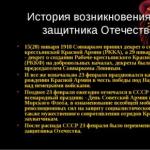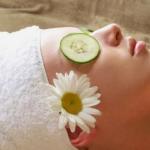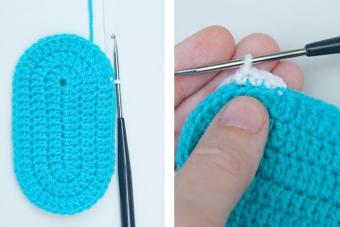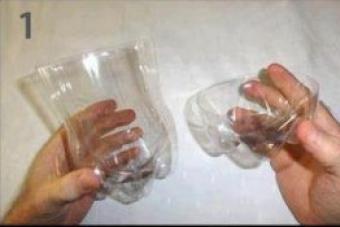“A healthy lifestyle for children is the task of parents”
Often adults believe that the most important thing for a child is to learn a lot. Is it possible to explore the world if you feel dizzy, if your body is weakened by illness and laziness, if it doesn’t know how to fight illnesses?
When raising a child in a family, we often use the word “habit.” Bad habits of preschoolers usually include irresponsibility, disorganization, and laziness. The basis of these problems is the lack of habit of being healthy both spiritually and physically. From an early age it is necessary to form a positive image of a healthy person. Convince your children that if you don’t play sports, it will be difficult to achieve success in learning and you won’t become strong and healthy!
Modern man understands less and less what physical labor is. A sedentary lifestyle affects the overall health of children. Physical education classes make up for the deficit in physical activity by only 11%. The family should help form the habit of maintaining health. preschool.
Parents often brush off children's problems, considering them not serious. However, self-esteem appearance, the figure does not allow the child to live in peace, interferes with communication with friends, and can even lead to tragedy.
In such a situation, parents must understand that they are obliged to support their child, to do the almost impossible, to show by personal example how best to improve their appearance by engaging in physical education.
If parents monitor their health and their physical fitness, then the child will lead an active lifestyle, he is always ready to imitate: exercise in the morning, active recreation on weekends, hardening. Walking and hiking together is a cure for diseases of the soul and body.
It is necessary for parents: not to strive to exempt the child from physical education classes, they are as important as classes in any other subject in kindergarten; promote his systematic training in sports section; participate in all sporting events of the kindergarten, both as participants and fans; promote a healthy lifestyle in the family; get rid of bad habits and lead an active lifestyle.
Parents, together with physical education instructors, should become equal participants in the physical education of children - developing endurance and other physical qualities, expansion and other physical qualities, expanding motor skills, ensuring physical perfection, and preventing mental fatigue.
Physical culture should become a way of life for children!
It is necessary to provide an opportunity for everyone to join the sports and health lifestyle so that caring for health becomes a habit. Upon realizing healthy image In life, moral principles are combined with practical actions. Physical education classes contribute to the development of courage, willpower, hard work, nobility and mercy.
High results in work, sports, improved health, and maintaining excellent physical shape leave no room for bad habits!
Any sport you choose will give your child initial physical development and create the basis for further specialization, when the child himself consciously chooses, maybe even another sport.
Physical education and sports help create a rational daily routine so that the day is fruitful and eventful, successfully combine physical activity with rest: they discipline, promote spiritual and physical development.
A family in which a healthy lifestyle reigns and loves physical education and sports passes on its traditions from generation to generation.

Habit formation
to a healthy lifestyle.
Dear fathers and mothers!
If your children are dear to you, if you want to see them happy, help them maintain their health. Try to make sure that physical education and sports in your family become an integral part of joint leisure time.
- WITH early childhood Nurture your children into the habit of physical education and sports!
- Respect your child’s sporting interests and passions!
- Support the desire to participate in class and school sporting events!
- Participate in class and school sports events, this helps strengthen your authority in the eyes of your own child!
- Cultivate in your children respect for people involved in sports!
- Tell us about your sports achievements in childhood and youth!
- Give to your children sports equipment and equipment!
- Demonstrate your example of physical education and sports!
- Take your child for walks in the fresh air as a family, hikes and excursions!
- Rejoice at the success of your child and his friends in sports!
- Place awards for your child’s sporting achievements in a prominent place in the house!
- Support your child in case of failures, strengthen his will and character!
Exercise at home
So that classes bring only benefit and health to your child,
It is necessary, first of all, to carefully study the specialized literature!
It is advisable to conduct classes in one, specially prepared place, free from furniture. It is first necessary to ventilate the room well and carry out wet cleaning (dust is the strongest allergen).
The workout should last 15–20 minutes.
It is better to conduct training at approximately the same time and regularly (every or every other day) so that the need for them develops.
By studying at home, the child will receive more attention and train according to an individual program.
Formation of a healthy lifestyle in your children.
1. Start a new day with a smile and a morning workout.
2. Follow a daily routine.
3. Remember: a smart book is better than aimless watching TV.
4. Love your child, he is yours. Respect your family members, they are fellow travelers on your journey.
5. Hug your child more often.
6. A positive attitude towards yourself is the basis of psychological survival.
7. There are no bad children, only bad actions.
8. Personal example for a healthy lifestyle is better than any morality.
9. Use natural hardening factors - sun, air and water.
10. Remember: simple food is healthier than elaborate dishes.
11. Best view relaxation - a walk with the family in the fresh air; the best entertainment for a child is a joint game with parents.
A healthy lifestyle is:
- rational daily routine
- proper nutrition
- good sleep
- motor activity
- physical education and sports
Staying outdoors
- no bad habits
[Download the file to see the picture]
Keep your finger on the pulse and
take care of your child's health!
Healthy lifestyle.
How to form
Healthy lifestyle in the family?
Physical education instructor
Novikova L.I.
____________________________
1. Start a new day with a smile and a morning workout.
2. Follow a daily routine.
3. A smart book is better than aimlessly watching TV.
4. Love your child - he is yours.
5. Respect your family members, they are fellow travelers on your journey.
6. You should hug your child at least 4 times a day, and preferably 8 times.
7. There are no bad children, only bad actions.
8. A positive attitude towards yourself is the basis of psychological survival.
9. A personal example of a healthy lifestyle is better than any morality.
10. Use natural hardening factors - sun, air and water.
11. Remember: simple food is healthier than elaborate dishes.
12. The best form of relaxation is a walk with the whole family in the fresh air.
13. Best Entertainment for a child – a joint game with parents.
Take care of your child's nervous system!
Many children are capricious, irritated, cry over every little thing, cannot find something to do, reach for everything, and if refused, kick.
Analyze why your baby is so extremely irritable: is his daily routine structured correctly, is he overtired, is he sick?
Often such nervous excitement is the result of an overload of the child’s nervous system and the cause, as a rule, is the parents themselves. Many parents take their children shopping, to the movies, or on visits, where there is a lot of noise and conversation. It is not uncommon for parents to yell at or bully their children. All this ends up on the child’s fragile nervous system and weakens it.
Parents! Always be even, affectionate and friendly with your child.
Try to avoid it from being too bright
and impressions that strongly excite his nervous system.
Take care of your child's nervous system!
Organizing child nutrition at home
On weekdays, a child attending kindergarten, eats at home once for dinner, and on weekends he has breakfast, lunch and dinner at home.
The child needs to eat strictly according to the clock; this is very important for good appetite and food absorption.
Between feedings, the baby should not be given any food, especially sweets.
During lunch, you also need to observe consistency and order in changing dishes: do not put the first and second dishes on the table at once, and especially the sweet ones.
Try to give your baby more fruits, berries, and raw vegetables - this stimulates the appetite and enriches the body with vitamins and mineral salts necessary for its development.
It is useful for a child to take a walk before meals, but the walk should not be tiring and exciting for him.
Persistently and patiently instill in your child the skills of cleanliness and independence: wash your hands before eating, take out your bib or apron, bring your own plate and spoon, and wipe with a napkin after eating.
After eating, remind your child to clear the table, put the cup on the saucer, and put the spoon on the plate.
Need to remember:
ü The child must be fed at strictly established times.
ü Give only what is appropriate according to age.
ü Children should be fed calmly, patiently, allowing them to chew their food well.
ü Do not force feed your child under any circumstances.
ü Do not distract from eating by reading or playing.
ü Do not use rewards for what is eaten or threats or punishments for what is not eaten.
It is necessary to encourage:
ü the child’s desire to eat independently;
ü the child’s desire to participate in setting and cleaning the table.
It is necessary to teach children:
ü wash your hands thoroughly before eating;
ü chew food with your mouth closed:
ü eat only at the table;
ü use a spoon, fork, knife correctly;
ü when getting up from the table, check your place to see if it is clean enough, and if necessary, clean it yourself;
ü After finishing the meal, thank those who prepared it and set the table.
When instilling in children the habit of eating different foods, adults should be patient, since it takes a very long time for children to develop a positive attitude towards food, especially if the family and kindergarten do not have common views on this matter.
About hardening
A good means of hardening is to sleep in a cool, well-ventilated room. In the summer, it is advisable for the child to be in the fresh air as much as possible and sleep at night in a room with an open window or vent.
It is necessary for the child to walk in any weather, without fear of frost, light rain, or wind. Only very strong winds, heavy rain, frost above 18-20 degrees should be avoided.
You should set aside a certain time in your daily routine for walking.
You need to dress your child according to the season. Clothes should not overheat the child and interfere with free movements.
The child should wash his feet every night at night in cool water, and his hands should also be taught to wash only with cool water.
In addition to the indicated means of hardening the child’s body, there are special procedures: dousing, rubbing, air baths, gymnastics. But these means of hardening must be approached individually, taking into account the health status of each child individually.
To choose the right hardening method, you must consult a doctor.
Dear fathers and mothers!
If your children are dear to you, if you want to see them happy, help them maintain their health:
Try to make sure that physical education and sports in your family become an integral part of joint leisure time.
From early childhood, instill in your children the habit of physical education and sports!
Respect your child's sports interests and passions!
Support his desire to participate in group and kindergarten sports activities!
Participate in sports activities of the group and kindergarten, this helps strengthen your authority in the eyes of your own child!
Foster in your children respect for people involved in sports!
Tell us about your sports achievements in childhood and youth!
Give your children sports equipment and equipment!
Showcase your example of physical education and sports!
Formation of a healthy lifestyle:
1. Start a new day with a smile and morning
warm-up.
2. Follow a daily routine.
3. Remember: a smart book is better than an aimless one
watching TV.
4. Love your child, he is yours. Respect members
your family, they are fellow travelers on your journey.
5. Hug your child more often.
6. Positive attitude towards yourself is the basis
psychological survival.
7. There are no bad children, only bad actions.
8. Personal example for a healthy lifestyle -
better than any morality.
9. Use natural hardening factors -
sun, air and water.
GOBOU TsPMSS
Escort service
substitute families
Kirovsk
Memo
For
parents
"Healthy image
children's lives -
task
parents"

When raising a child in a family, we often use the word
"habit". Bad habits of students usually
include irresponsibility, disorganization, laziness. IN
the basis of these problems lies in the lack of the habit of being
healthy both spiritually and physically. From an early age it is necessary
create a positive image of a healthy person.
Reassure children that if they don't play sports,
it will be difficult to achieve success in learning, you won’t
strong and healthy!
Modern man understands less and less that
is physical labor. Sedentary lifestyle
(classes at school, homework, sitting in front of the computer
and television) affects overall health
children. Physical education lessons fill the gap
physical activity by only 11%. Help
form the habit of maintaining health
family, general education and sports schools.
Parents often brush off children's problems
considering them not serious. However, self-esteem of external
appearance, figure does not allow a teenager to live in peace, interferes with
communication with friends can even lead to tragedy.
In such a situation, parents must understand that they
are obliged to support their child, to do almost
impossible, show by personal example how it is possible
It's better to improve your appearance by doing physical exercises
culture.
If parents take care of their health, their physical
form, then the child will lead an active lifestyle,
he is always ready to imitate: morning exercises, active
rest on weekends, hardening. Joint
walks, hikes - this is the cure for diseases of the soul and body.
Parents must: do not try to free the child
from physical education lessons, they are as important as
lessons of any other subject at school; promote
his systematic training in the sports section;
participate (together with teachers) in all sports
school events, both as participants and
fans; promote a healthy lifestyle in the family;
Parents together with physical education teachers and
trainers and teachers of sports schools should
become equal participants in the physical
raising children - developing endurance and other
physical qualities, expansion and other physical
qualities, expansion of motor skills, preparation for
labor and military service, ensuring physical
perfection,
mental
overwork.
Physical education should become a way of life for children!
warnings
It is necessary to ensure the opportunity for everyone to join
sports and health lifestyle so that
Taking care of your health has become a habit. Upon realizing
healthy lifestyle moral principles
combined with practical actions. Classes
physical culture contributes to the education
courage, willpower, hard work, nobility and
mercy.
High results in work, sports, improved health,
maintaining excellent physical shape does not leave
place for bad habits!
Any sport you choose will give you an initial
physical development of your child will create the basis for
further specialization, when the child himself consciously
maybe even choose another sport.
Physical education and sports help
create a rational daily routine so that the day passes
fruitful and rich, successfully combine physical
A family in which reigns
load with rest: they discipline, promote
healthy lifestyle,
spiritual and physical development.
and love physical
culture and sports,
conveys his
traditions from generation
to a generation.
Dear adults! Your child, like air, needs a daily routine that is reasonably designed and appropriate. age characteristics. The fact that a child gets used to eating, sleeping, and being active at the same time creates favorable preconditions for his all-round development.
The daily routine should be quite flexible. Depending on conditions (home, climate, time of year, individual characteristics child) it can change, but no more than 30 minutes in one direction or another.
After charging, the child needs to take water procedures (harden with water).
Insufficient motor activity - hypokinesia - is becoming more and more “younger”. It is observed not only in older children, but increasingly in younger schoolchildren, preschoolers and even very young children. Physical activity is an essential component of the lifestyle and behavior of preschool children. Children who regularly engage in physical education are characterized by cheerfulness, good spirits and high performance. Physical education occupies a leading place in the upbringing of children and plays a significant role in introducing children with early age to a healthy lifestyle falls on the shoulders of parents.
To relieve anxiety before bed, you can use an aroma lamp with lavender oil (2-3 drops). Sit on the bed next to the child; gently, smoothly stroke his back along the spine, kiss him, say that tomorrow everything will be fine, everything will work out for him, that he is smart and kind.
Make sure that the child wakes up smoothly (he should lie in bed for at least 10 minutes; placing an alarm clock at the head of the crib is contraindicated).
Carry out water hygiene procedures with the child, and after airing the room - morning exercises to the music.
Before breakfast, give your child a glass of fruit or vegetable juice. When preparing dishes, use foods rich in minerals and trace elements, proteins, light carbohydrates, and vitamins.
During periods of risk of ARVI, give garlic and green onions as an additive to soups.
Joint active leisure:
1. helps strengthen the family;
2. forms the most important moral qualities in children;
3. develops curiosity in children;
4. introduces children to the amazing world of nature, fostering a caring attitude towards it;
5. broadens the child’s horizons;
6. forms in the child primary ideas about the history of his native land, traditions, and culture of the people;
7. brings all family members closer together (children share the same tasks with their parents and feel involved in a common cause).
Carrying out joint family holidays - be it family hiking trips, active recreation at sea, in the mountains, participation in sports family games, for example, “Dad, Mom, I am a sports family,” cycling in the forest, etc. – have a beneficial effect on preschoolers and their parents. Parents and children can:
1. In winter - go skiing with children, ice skating, sledding, hiking in the nearest forest, park, sculpting snow fortresses and figures in the yard.
2. In spring and autumn - take children with you on one-day hiking trips, go on holiday together at the seaside, at the dacha, organize joint yard activities with outdoor games.
3. In the summer - sunbathe, swim, arrange noisy, active games on the street.
4. Arrange joint family readings about a healthy lifestyle. (For example, A. Barto’s poem “The Dirty Girl” will make children want to wash their faces and wash their hands with soap, S. Mikhalkov’s work “About a Girl Who Didn’t Eat Well” will help overcome poor appetite, S. Mikhalkov’s poem “About Mimosa” will talk about the need for hardening etc.)
In conclusion, I would like to offer parents formulated family rules regarding daily routine, hardening, nutrition and other components of a healthy lifestyle.
Family Health Code.
1. We start every day with exercise.
2. When we wake up, we don’t lie in bed.
3. Take cold water as friends, it gives vigor and strength.
4. To kindergarten, to school, to work - on foot at a fast pace.
5. Let's be generous with our smiles, never lose heart!
6. When we meet, we wish each other good health (Hello!)
7. The regime is our friend, if we want to do everything in time, we will do it!
8. Don’t chew anything while watching TV!
9. On vacation and weekends - only together!
Ten tips for parents about children's health
Tip 1 . For all questions regarding your child’s health, you should contact a pediatrician, who will prescribe treatment or, if necessary, refer the child for examination to other medical specialists. In special cases, so that there is no delay in the start of treatment, when the first characteristic features diseases, it is recommended to immediately contact a specialist in this field of medicine.
Tip 2 . If you notice that your child, among his peers, is characterized by awkward movements, poor speech, if he has fainting, dizziness, headaches, vomiting, or gets motion sickness in transport, you need to consult your child with a neurologist.
Tip 3. Pay attention to the child’s behavior: excessive mobility, hyperexcitability or, conversely, lethargy, fatigue, tearfulness, fears, disturbed sleep, obsessive movements - these are the most common symptoms of mental stress in a preschool child’s still weak nervous system. If these signs appear, you should definitely show the child to a child psychiatrist.
Tip 4 . Your child often asks questions or does not always respond to speech addressed to him, he has frequent sore throats, loss of voice, cough, constant runny nose, if the child sleeps with his mouth open, snores in his sleep, has a nasal sound when talking - consult your child with an ENT doctor ( otolaryngologist).
Tip 5. If a child has a poor appetite, often experiences nausea, vomiting, bowel problems (constipation, loose stools), abdominal pain (before meals, after meals), you should seek qualified help from a gastroenterologist.
Tip 6 . Seeking the advice of an allergist is necessary in cases where during the preschool period a child experiences a reaction (rash, swelling, difficulty breathing, sudden runny nose, sneezing) to some food, odors, pollen, medications, vaccinations.
Tip 7 . Inflammation of the skin in different parts of the body (usually on the arms and legs), accompanied by redness, itching, peeling, exudation - perhaps these are signs of chronic dermatitis or eczema, which a dermatologist will help cure. You should contact a dermatologist if there are any visible changes in the condition of the skin, nails, or hair.
Tip 8 . If you notice that a child squints his eyelids when looking at distant objects, or bends low over a page of an album or book, sits close to the TV screen, if from a distance (from a distance of 5 meters) he does not distinguish small (up to 1 cm in diameter) objects, It is necessary to check your child’s visual acuity - contact an ophthalmologist (ophthalmologist).
Tip 9. Constantly pay attention to the child’s posture: when walking, he stoops, he has one shoulder lower than the other, his shoulder blades protrude strongly when his back is straight; sitting on a chair, he noticeably bends in one direction or another, tries to change his position frequently, bends low (almost lies on the table) while drawing, etc. - an examination of the condition of the spine should be carried out by an orthopedic specialist.
Tip 10. Do not forget about the need for mandatory preventive examinations of your child by the following specialists: endocrinologist (prevention of thyroid diseases, diabetes, obesity, growth disorders), surgeon (detection of congenital anomalies), dentist (detection and treatment of caries), cardiologist (diagnosis of cardiac and vascular dysfunctions ), speech therapist (speech and sound perception disorders).
Strengthen your body
My whole family knows
There must be a routine for the day.
You guys should know
Everyone needs to sleep more.
Well, don’t be lazy in the morning—
Get ready to exercise!
Brush your teeth, wash your face,
And smile more often
Temper yourself, and then
You're not afraid of the blues.
Health has enemies
Don't make friends with them!
Among them is quiet laziness,
You fight it every day.
So that not a single microbe
I didn't accidentally get it in my mouth,
Wash your hands before eating
Need soap and water.
Eat vegetables and fruits
Fish, dairy products -
Here's some healthy food
Full of vitamins!
Go for a walk
Fresh air breathe.
Just remember when leaving:
Dress for the weather!
Well, what if it happened:
I got sick,
Know that it's time for you to see a doctor.
He will always help us!
These are the ones good advice,
Secrets are hidden in them,
Learn to appreciate it!





